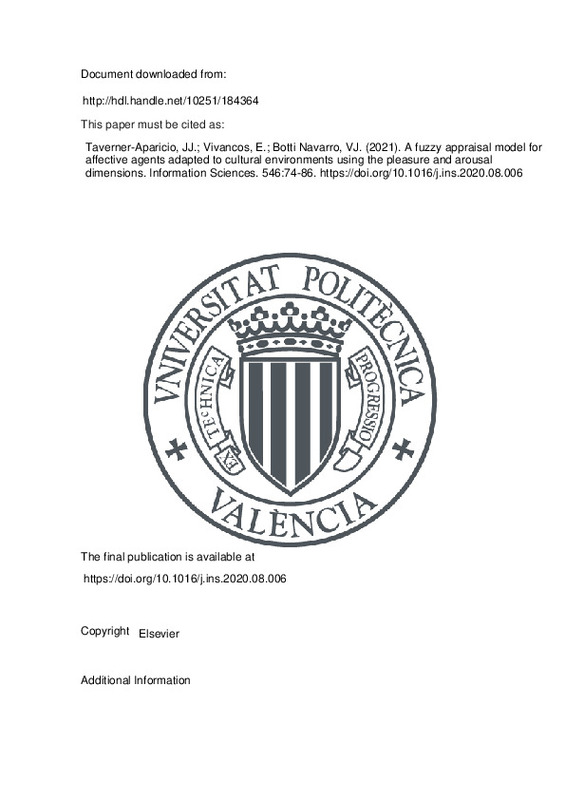JavaScript is disabled for your browser. Some features of this site may not work without it.
Buscar en RiuNet
Listar
Mi cuenta
Estadísticas
Ayuda RiuNet
Admin. UPV
A fuzzy appraisal model for affective agents adapted to cultural environments using the pleasure and arousal dimensions
Mostrar el registro completo del ítem
Taverner-Aparicio, JJ.; Vivancos, E.; Botti Navarro, VJ. (2021). A fuzzy appraisal model for affective agents adapted to cultural environments using the pleasure and arousal dimensions. Information Sciences. 546:74-86. https://doi.org/10.1016/j.ins.2020.08.006
Por favor, use este identificador para citar o enlazar este ítem: http://hdl.handle.net/10251/184364
Ficheros en el ítem
Metadatos del ítem
| Título: | A fuzzy appraisal model for affective agents adapted to cultural environments using the pleasure and arousal dimensions | |
| Autor: | ||
| Entidad UPV: |
|
|
| Fecha difusión: |
|
|
| Resumen: |
[EN] Humans use rather vague and imprecise words to express emotions. Therefore, fuzzy logic allows computational affective models to use emotions in the same way that human beings express them. However, people from different ...[+]
|
|
| Palabras clave: |
|
|
| Derechos de uso: | Reconocimiento - No comercial - Sin obra derivada (by-nc-nd) | |
| Fuente: |
|
|
| DOI: |
|
|
| Editorial: |
|
|
| Versión del editor: | https://doi.org/10.1016/j.ins.2020.08.006 | |
| Código del Proyecto: |
|
|
| Agradecimientos: |
|
|
| Tipo: |
|







![[Cerrado]](/themes/UPV/images/candado.png)


